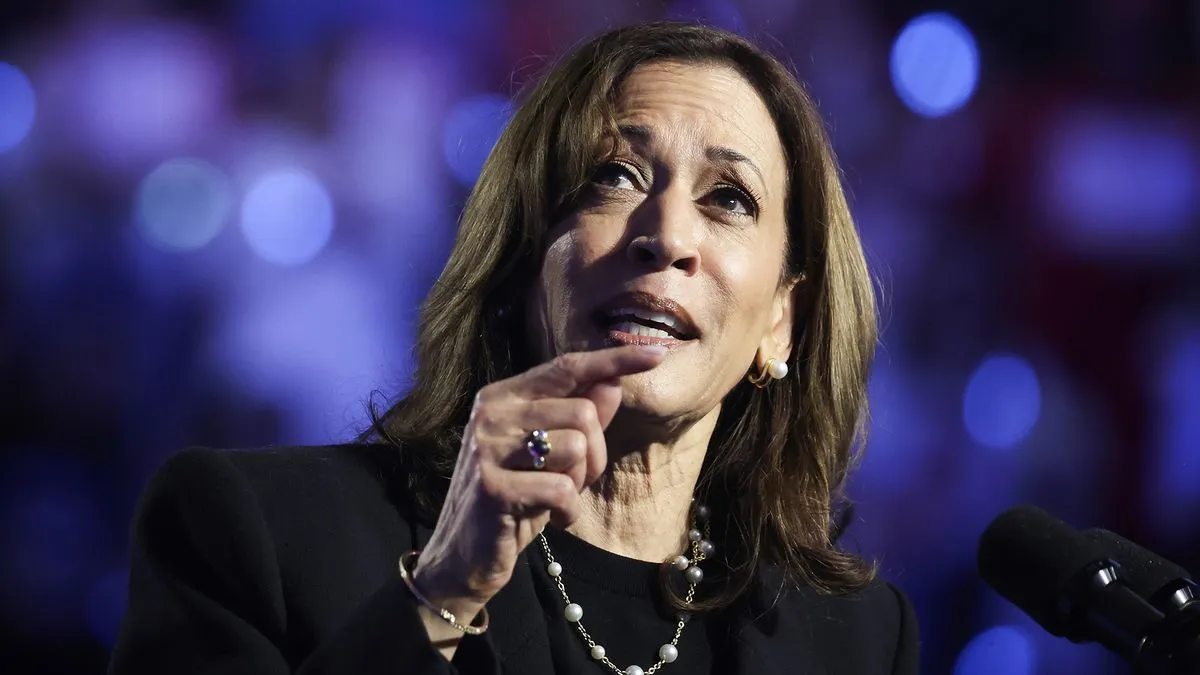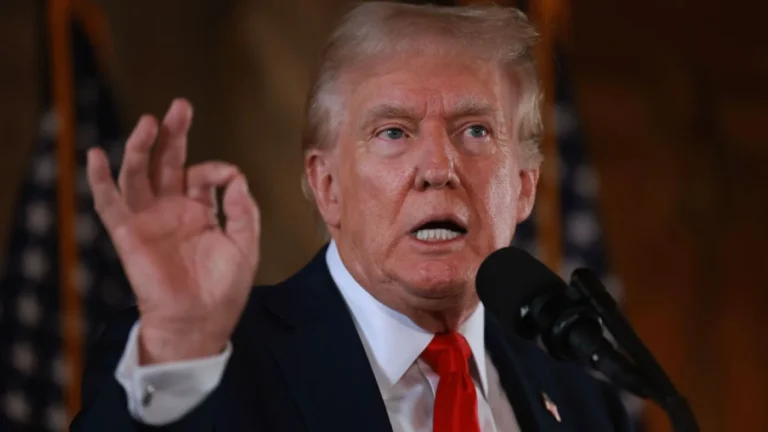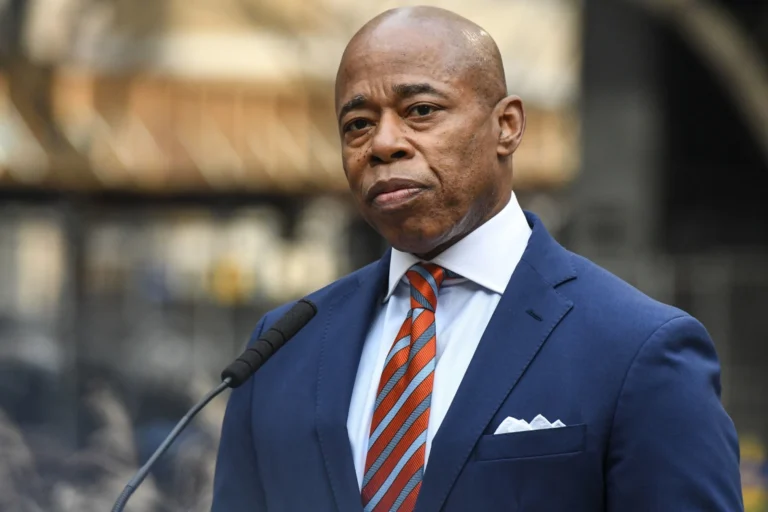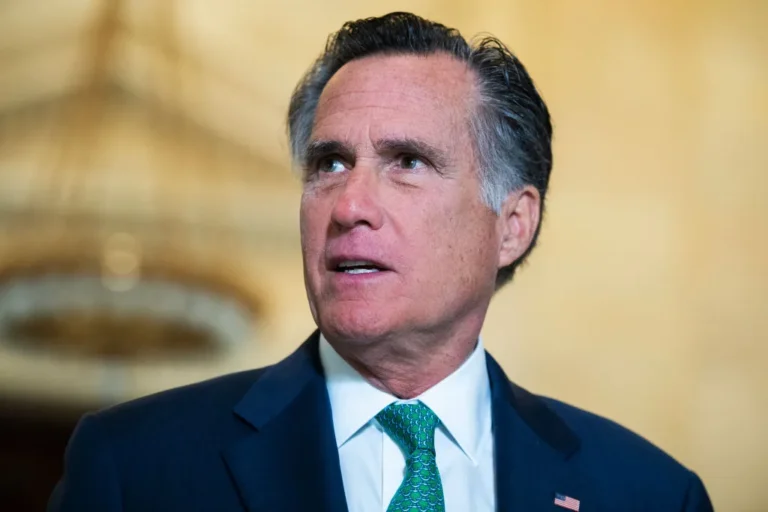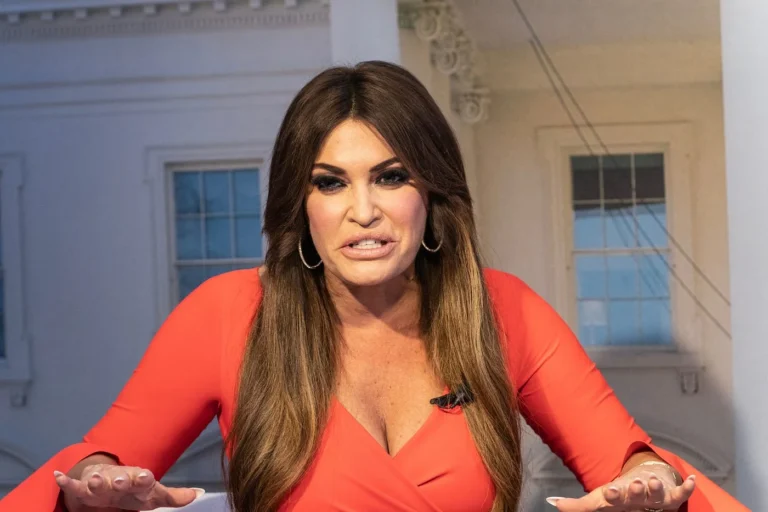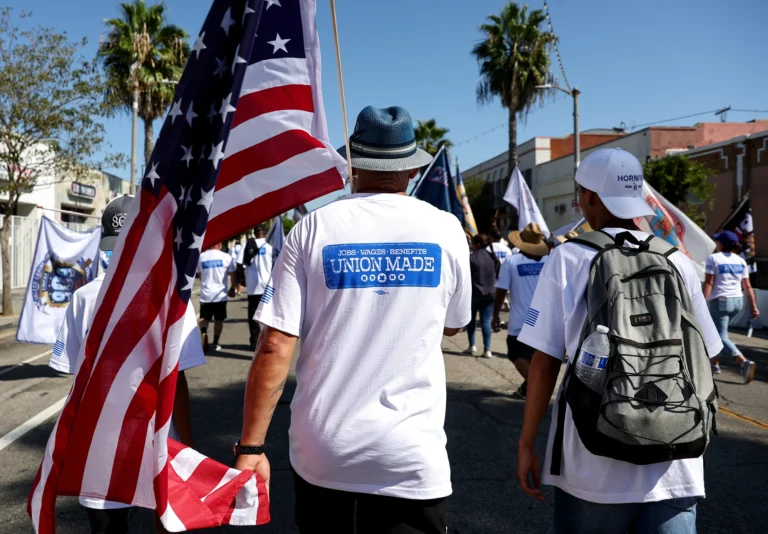In a recent campaign ad supporting Kamala Harris, a woman discreetly marks her ballot for the Democratic candidate while her husband, apparently unaware, assumes she’s voting for Republican Donald Trump. The ad, which plays on the secrecy of the voting booth, delivers the message that “what happens in the booth, stays in the booth,” a phrase narrated by actress Julia Roberts. In just 30 seconds, this clip subtly hints at private voting choices in polarized households, making a point about individual autonomy in a heated political climate.
In the ad, the woman and her husband arrive at a polling station wearing baseball caps with American flags, a symbol often associated with Trump supporters. As they head toward the voting booths, she exchanges a quick, knowing look with another female voter before casting her ballot for Harris. When her husband asks, “Did you make the right choice?” she replies, “Sure did, honey.” The ad, funded by the religious nonprofit Vote Common Good, has stirred controversy and elicited strong reactions from Trump supporters. Trump himself publicly criticized the ad, calling it “stupid” and expressing disbelief at the idea of a wife not sharing her voting decision with her husband.
The Harris campaign ad isn’t the only one to highlight the secrecy of voting in relationships divided by political affiliation. Anti-Trump political group The Lincoln Project has also produced a similar video, featuring two men who are confident that their wives will vote for Trump. However, the women in the video, along with other female voters at the precinct, secretly mark their ballots for Harris. These ads are more than humorous takes on marital and political secrecy—they underscore the critical issues and intense efforts surrounding voter mobilization in this election, especially for Harris.
This approach highlights two significant aspects of the current U.S. presidential campaign. First, it reflects the fact that both Trump and Harris are fighting hard for every possible vote in one of the most closely contested presidential races in recent history. Second, it demonstrates Harris’s strategic reliance on mobilizing female voters to help tip the scales in her favor. The gender gap in this election is unprecedented, with recent polls by NBC showing a striking 34-percentage point divide between male and female intended voters. Harris holds a 16-point lead among women, while Trump maintains an 18-point lead among men, revealing a stark contrast in gender preferences.
The widening gender gap can largely be attributed to Harris’s focus on reproductive rights, an issue that has gained even more traction since the Supreme Court’s 2022 decision to overturn the federal right to abortion. Harris’s campaign has emphasized this issue to appeal to women voters, particularly those who may feel that reproductive rights and healthcare are on the line in this election. The messaging surrounding the ad aims to remind women that their vote is personal and private, especially when they might be in households or communities where they feel their political voices are not heard or valued.
Notably, Michelle Obama, the former First Lady, echoed this sentiment, encouraging women voters to exercise their right to vote freely and privately. In a public statement, Obama reminded women who may feel overlooked in politically conservative households, “If you are a woman who lives in a household of men that don’t listen to you or value your opinion, just remember that your vote is a private matter.” Her remarks reinforce the idea that voting is an opportunity for individuals, regardless of family or household pressures, to voice their preferences on issues that matter to them.
This election has, in many ways, turned into a battle between two distinct narratives about gender roles in America. Trump’s platform emphasizes a “traditional and kind of patriarchal masculinity,” as described by Kelly Dittmar, a political science professor at Rutgers University, while Harris’s policies lean away from conventional gender expectations. Her campaign is betting on the possibility that women, especially those in conservative households, might cast a “secret” vote for her based on their own convictions rather than familial or social pressures. Liz Cheney, a former Republican congresswoman and outspoken critic of Trump, supports this notion, expressing her belief that many voters may privately choose Harris. “They may not ever say anything publicly but the results will speak for themselves,” Cheney said.
Vote Common Good, the nonprofit group behind the Julia Roberts-narrated ad, has continued this strategy by releasing a second spot aimed at male voters. This follow-up ad shows two men marking their ballots for Harris without revealing their choices to their Trump-supporting friends, further emphasizing the idea that personal political beliefs don’t always align with the public personas people may feel pressured to maintain.
These ads are indicative of a broader trend in American politics where voters are increasingly keeping their political decisions private, even from close friends and family. Harris’s campaign seems to be tapping into a hidden demographic of “secret” voters, those who might publicly lean toward Trump but privately align with Harris on key issues, particularly around reproductive rights and healthcare. As the campaign nears its final stretch, this push for hidden votes, especially from women, reflects the intense division within households and among friends in one of the most polarized elections in recent U.S. history.
Ultimately, the campaign tactic of targeting these secret voters could have a profound impact on the election’s outcome. With such a tight race, Harris’s campaign is banking on the hope that many people will quietly choose her in the privacy of the voting booth, making a statement about the power of personal choice even when societal or family expectations suggest otherwise.
